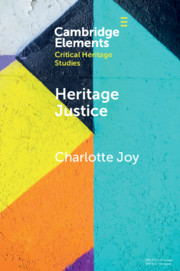1 results

Heritage Justice
-
- Published online:
- 26 October 2020
- Print publication:
- 19 November 2020
-
- Element
- Export citation

